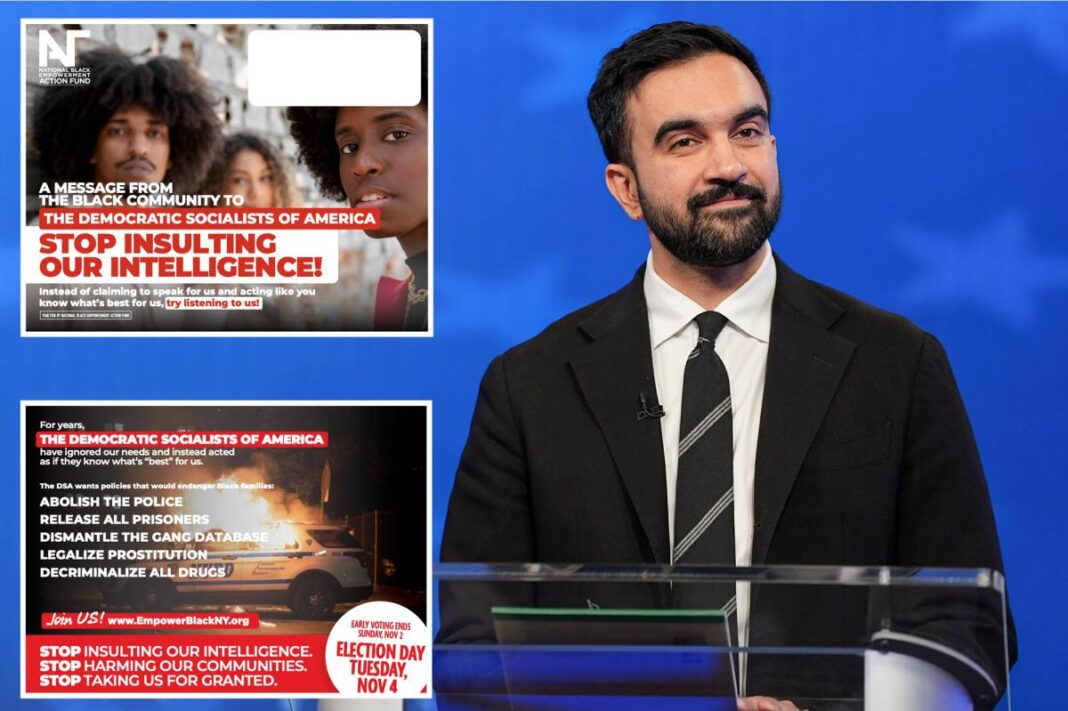National Black Advocacy Group Launches $2 Million Campaign Against DSA
A significant stir has been created in New York’s political landscape as the National Black Empowerment Action Fund (NBEAF) unrolls a $2 million campaign targeting mayoral candidate Zohran Mamdani and his affiliations with the Democratic Socialists of America (DSA). With an agenda purportedly harmful to African-Americans, the campaign has caught the attention of both local voters and political analysts.
Purpose and Strategy of the Campaign
Darius Jones, the founder and executive director of NBEAF, emphasizes that the campaign is not merely about policy details but a stand on principle. “What the DSA is pushing would hollow out everything generations of black New Yorkers fought to build: safe streets, strong schools, and ownership of our futures,” he stated, underlining a deep-seated concern about the implications of DSA’s progressive policies.
The NBEAF plans to spend $1.3 million in total before Election Day on November 4, focusing its efforts on advertising, mailers, and grassroots outreach, especially within African-American communities through churches and mosques. Their messaging encapsulates strong warnings against the DSA’s agenda, portraying it as a threat to the very fabric of black community progress.
Critique of DSA Policies
The NBEAF’s materials assert that the DSA supports initiatives that could jeopardize the safety and stability of black families. The flyers branded the DSA’s agenda as “Dangerous. Senseless. All wrong for Black America,” discussing controversial positions such as releasing violent prisoners, dismantling the NYPD’s gang database, and decriminalizing all drugs, including deadly substances like heroin and fentanyl.
Imam Qazi Qayyoom, a prominent faith leader, voiced strong opposition to DSA’s proposals. Highlighting past experiences with drug-related issues in the community, he warned that such policies could reintroduce destructive forces into neighborhoods that have made significant strides toward recovery.
Concerns from Faith Leaders
The sentiment against Mamdani’s candidacy and the DSA’s platform resonates deeply among faith-based leaders in the community. Pastor Zidde Hamatheite from the Wayside Baptist Church articulated his discontent, asserting that the DSA’s positions on policing and drug decriminalization are not progressive but rather a capitulation to societal issues, arguing that such a stance is detrimental to communities striving for improvement.
Similarly, Rev. James Kilgore of the Friendship Baptist Church emphasized how the DSA’s opposition to charter schools and high-quality public schooling would adversely affect black and brown children. He pointed out that phasing out gifted and talented programs threatens the educational futures of many young New Yorkers who rely on such opportunities.
Historical Context and Voting Trends
Historically, most black voters have aligned themselves with mainstream Democratic ideals rather than the radical proposals put forth by the DSA. During the Democratic primary for mayor, more black New Yorkers cast their votes for former Governor Andrew Cuomo than for Mamdani. However, the dynamics have shifted as Mamdani emerged as the Democratic nominee. Recent polling indicates that many black voters, traditionally loyal to the Democratic Party, are now gravitating toward Mamdani’s candidacy despite earlier affiliations with Cuomo, who is now running independently.
Long-Term Impacts of the Campaign
Jones insists that the NBEAF’s campaign against the DSA and Mamdani will extend beyond the immediate election, indicating a long-term commitment to addressing issues perceived as threatening to black communities in New York. While Mamdani’s campaign has yet to issue a direct response to these claims, the NBEAF continues to frame their initiative as a crucial defense for African-Americans against what they view as misguided and dangerous policies.
As the election approaches, the intersection of race, advocacy, and political ideology promises to intensify, setting the stage for a critical dialogue about the future of New York City and its diverse communities.



